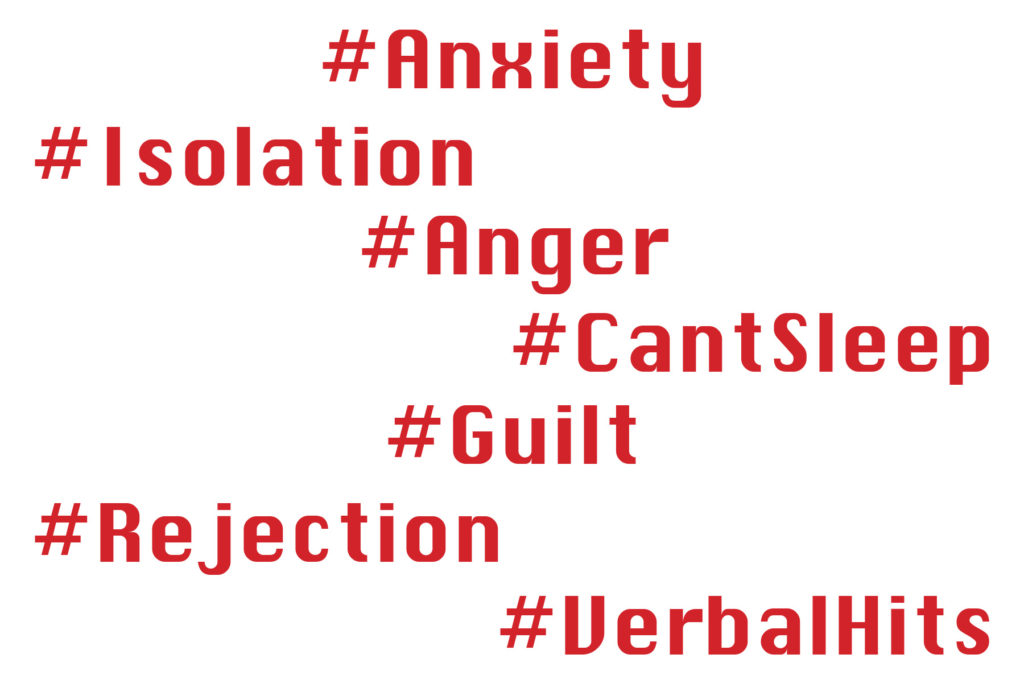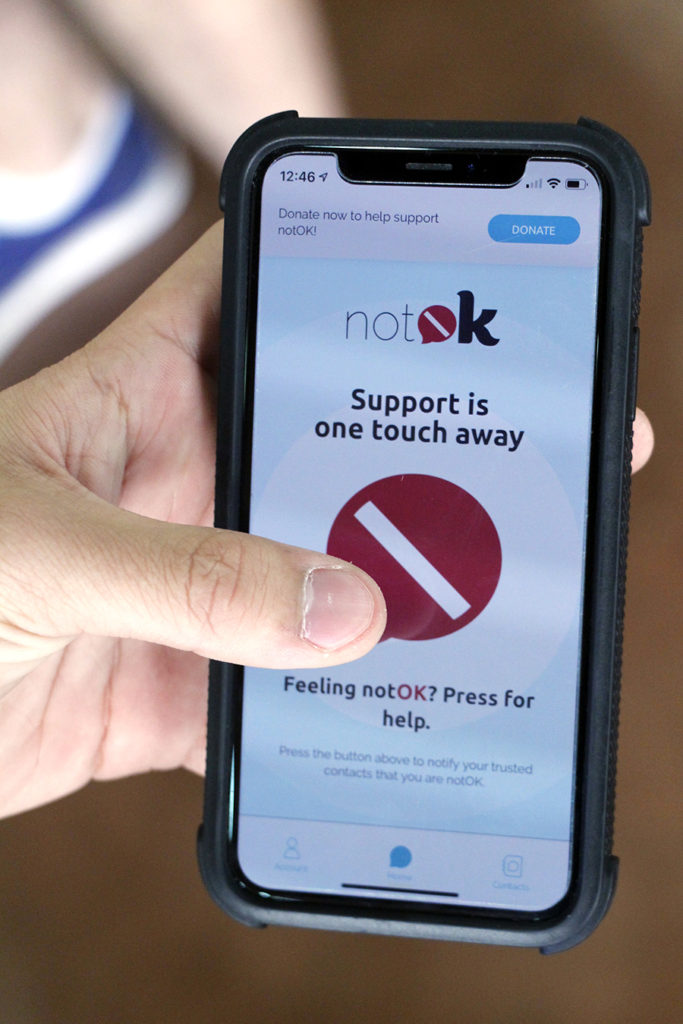Jesus was no stranger to suffering, both mental and physical. He anguished over money changers in the temple. He agonized while praying in the garden after the Last Supper and the next day while carrying a cross before being crucified.
Still, neither extreme anger, sorrow or distress over life’s woes moved Him to expedite it beyond God’s timeline.
Taking the life of a person, be it in utero, outside the womb at any age, or when the killer is also the victim, violates the fifth commandment.
Teen stress
The following is a sample of the stressors today’s teens face, particularly in the spring. If not properly managed, they could easily lead to anxiety, depression and thoughts of suicide:
➤ Academics and the
expectation to perform➤ Social issues among friends/peers
➤ College courses as a high school student
➤ Athletics
➤ SATs/finals
➤ Graduation and transition to life’s next chapter
Suicide, the intentional taking of one’s life through any means, does occur though, to the permanent silencing of 123 American lives per day, according to Mental Health America. Another 90 percent are unsuccessful with their attempts.
It’s the second leading cause of death among adolescents and young adults aged 10-24 years old. Arizona Senate Bill 1468, which is also known as the Mitch Warnock Act, would equip teachers to identify signs of mental health issues in students and act if they feel any are suicidal. It passed House committees in March and April.
The National Suicide Prevention Lifeline reported 15,025 callers from Arizona in the first six months of 2018. Numbers easily topped 20,000 in 2017, 2015 and the year prior. There were at least 10 teenaged suicides in the East Valley within a five-month span in late 2017.
Teens at St. Benedict Parish in Phoenix knew the victim who chose to draw his final breath at Tempe’s Corona del Sol High School in 2015. That incident wasn’t what spurred the parish’s youth minister into talking about suicide prevention and signs, however. It had already been part of the annual lesson plans since David Rees took over the position in 2013. Life, God willing, and not death, had taught him the importance of proactive dialogue regarding teen suicide.
Failure to die
Rees recalled having vivid thoughts of suicide in his middle school years.
“I would constantly have this same vision of how it was going to happen,” he told The Catholic Sun in what became a deep conversation about his personal struggle with depression, those suicidal thoughts and how the temptation to act upon the latter is worse for today’s youth.
“There’s a lot of anger and distress,” said Rees. He identified academics, athletics and social issues among sources.
Related
“I’ve seen such a change and shift now where it’s ‘You have to be better. You have to be more,’” Rees said. Now many have one to two years of college done in high school. “They’re trying to grow up too fast. Not that we’re trying to stifle that, but be a kid.”
Related

At 22, Luke Maxwell isn’t much beyond his teenaged years, but he flat-out said he wouldn’t want to be a teen today, citing performance and digital media pressures.
“They’re seeing everybody else ‘perfect,’” Maxwell said, hinting at the “A” side of social media.
Rees agreed. The problem is, “We don’t see our uniqueness from a God [who says], ‘I made you beautiful the way you are. I don’t make junk.’”
Maxwell’s “U Can’t B Erased” initiative speaks to that, literally. He is a rapidly sought-after speaker on teen depression and mental health awareness. Maxwell spent four years with undiagnosed Major Depressive Disorder. Best his psychologists can tell, puberty likely triggered it deep within genetics.
“That’s why we see so many more teens becoming depressed,” he said. It led him to attempt suicide at 16 by steering his vehicle into an oncoming one. Both drivers survived, and, through the other driver’s mercy, Maxwell found healing.
Healthy ways to combat depression
➤ Exercise
➤ Writing, reading
➤ Volunteering
➤ Time with friends
➤ School activities
➤ Good diet and sleep
Wake-up call
Although Arizona’s suicide rate among men has been three to four times that of women since 2007, it’s not just a man’s issue. A prayer request for a teen girl on the verge of suicide passed through a Sun writer’s feed while researching this article.
A Catholic grandmother of eight fell to her planned death in the Grand Canyon in 2012. Laura Trujillo, the victim’s daughter and a veteran reporter, including a stint in Phoenix, was the keynote speaker at the 30th annual Suicide Awareness Memorial hosted April 13 in Minnesota by SAVE — Suicide Awareness Voices of Education.
For Rees, whose Adjustment Mood Disorder Depression led to suicidal visions as a “tween,” reading a novel later on in middle school served as a wake-up call. The book featured the death of a teenaged friend in a car accident and survivor’s guilt for the teen who drove. That character ultimately takes his own life with the final chapter showing its effects on others, most especially that suicidal teen’s younger brother. “Who’s supposed to teach me how to pick up girls?” are among the questions the lad asks.
Those pages had Rees’ attention. He is the middle child but protected both sisters as if he were the eldest. “I realized this was bigger than just me,” Rees said. “No matter how low I get, suicide is never an option.”
‘NotOK,’ but OK

Students at Brophy College Preparatory have regular reminders that suicide isn’t an option and that there is help for mental health issues. Rodolfo Leveriza is among the students grateful for that.
“I’ve had my own struggles with anxiety and depression and suicidal thoughts,” he said. “It’s a real issue that our communities face.”
He has used the “notOK” app to reach out to a trusted circle of contacts users establish when they find themselves in mental anguish. The app sends a pre-written text allowing those contacts to check in on the sender ASAP. Another message goes out when the sender is more stable.
“People will often live in a stoic sadness [rather] than open up and ask for help,” said Nate Kerber, a fellow Brophy senior.
Both young men are among a core team of student leaders that includes Xavier College Preparatory students coordinating “Stop the Stigma” efforts at the schools. Their message: it’s OK to talk about feelings, especially the negative ones that could signal mental health issues.
Most recent activity April 2-5 featured counselor introductions at lunchtime, student testimonies, an art showcase to model a healthy avenue for stress relief and a morning prayer service that featured a symbolic balloon release. Green was for depression awareness and yellow for suicide awareness. Six Brophy students were hospitalized last semester due to the effects of mental health issues. A Xavier senior attempted to take her own life during her freshman year. Now, exactly three years to the day of that “failure,” she spent April 15 putting a down payment on a freshman dorm with a friend.
It’s normal, particularly as a teen, to have big feelings and not know what to do. “It’s OK to say you need help. It doesn’t show weakness; it shows strength,” Rees tells St. Benedict teens.
Even having someone validate feelings and emotions — not trying to problem solve — is a positive step, he said. That’s all Jesus asked for in Gethsemane: for the Apostles to keep watch with Him during His agony.
Getting help
Behavioral Health Referral List – Diocese of Phoenix
Teen Lifeline: (602) 248-TEEN, (800) 248-TEEN
ucantberased.com, “Recognize” section offers teen and parent checklists
Text “MHA” to 741-741 or (800) 273-TALK
Screening tools from Mental Health America
Lafrontera-empact.org (offies Valleywide and Pinal County)
CrisisNetwork.org (based in Tempe)
Speakingofsuicide.com
Save.orgIntegraing Care of Body and Mind (Journal of Catholic Health Association)
This is the first article in a series.






